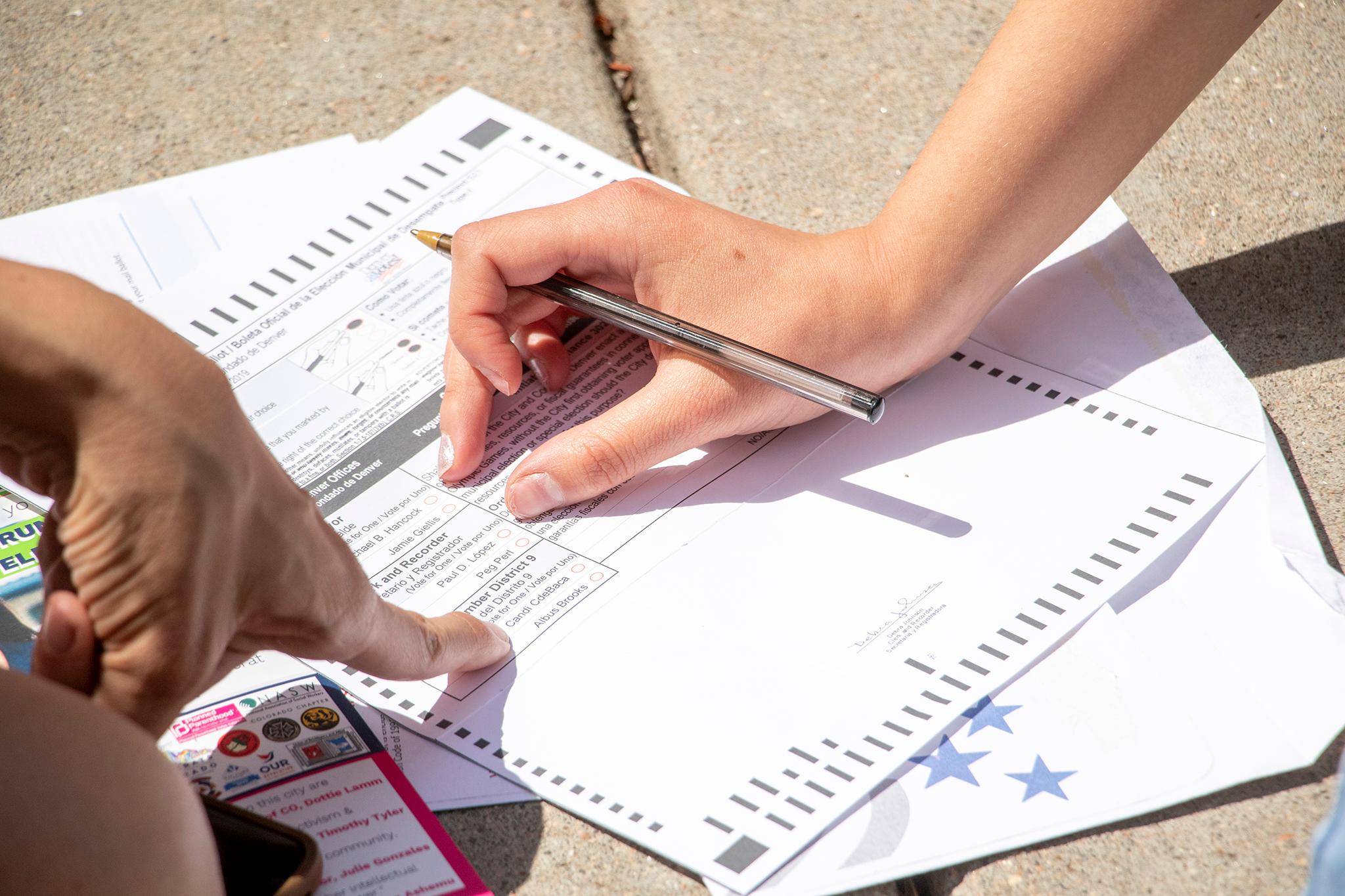Eddie Soto says he hears the comment during presidential election years.
"Why are you knocking on my door again?" His response is pretty straightforward: "If you voted every time, you wouldn't even exist to us."
While that might sound a bit harsh, it's the reality of political canvassing in Colorado, at least every four years. Soto runs a political fieldwork company called Ground Colorado, which does things like door-to-door canvassing and phone banking. He's not working for any candidate this election season, but he's worked in past presidential and U.S. Senate races for Democratic candidates.
In Denver, school board members are the only local candidates doing much canvassing this fall because they're the only ones up for election locally.
Soto said people who only vote every four years during presidential elections, or low-frequency voters, are the people who typically get a personal reminder that they need to return to their ballot. However, just because you did end up getting a visit from a stranger asking you to vote for them doesn't always mean you have a poor voting record.
It's the people who vote in every election who are in play right now, a mere two weeks from Election Day, during an election where people aren't voting for candidates for federal office. It's what Soto said is called ballot chasing.
"You know they're going to vote," Soto said about these residents.

Since Denver races are nonpartisan, you won't see a candidate's party affiliation next to their name on your ballot. So canvassing like going door to door or calling people up and asking them why they haven't voted can help convince people from both major parties to vote for them, since they, technically speaking, are not running on a party-specific platform. And targeting the people who always vote is a chance to earn a supporter.
JoyAnn Ruscha, who has managed or consulted on local and federal campaigns in Denver, said someone getting targeted at this moment has caught the attention of a campaign, in part because they believe the person is likely to vote.
"Listening is more effective than talking, and that's why door to door, or a phone call, can have an impact," Ruscha said. "It's much better than mail, and most of the time, better than TV."
Still, Soto knows most candidates are facing an uphill battle. Voter turnout isn't nearly as high during midterm or presidential elections, so it means canvassing can potentially make a huge difference. The same is true for municipal elections, like the ones Denver typically has every four years in May.
"I am usually surprised that municipal elections get such lousy turnout," Soto said. "They pretty much affect everything in your life."
Like everything else, though, the pandemic has changed some things. Wearing a mask and physical distancing is pretty common practice, though Soto said it's made door-to-door canvassing -- which is much more effective than phone banking -- harder.
"It's much easier to hang up on somebody than it is to close the door on somebody," Soto said.
So wait, how exactly do people know whether or not you've voted?
Who you vote for is private, but other details about your voting record are public information, according to Denver Elections spokesperson Alton Dillard. What this means is your name, address and party affiliation are all publicly available and can be easily downloaded from the city's election website.

When you download this data in spreadsheet form, it includes information about your ballot status. There's a column that shows whether your ballot has been "validated" and if it's been "accepted." According to Dillard, having both of these tags on your name means your vote has been cast. If these two columns are empty ... that potentially leaves you open to a campaign reaching out to ask why you haven't voted, and whether you would consider voting for them.
Campaigns usually get information about voters when they begin their campaigns, and even get software to manage all the data, Ruscha said. She said some campaigns even document every interaction they have with a voter and how often they call or mail someone.
Ruscha added that turning in your ballot will dial down the outreach, though sometimes, a lag in data could mean that even if you submit your ballot one day, you may still get a door knock the next day.
Soto said something similar: "As soon as you (return) your ballot, we know about it, we will quit calling you, or knocking on your door."
Don't feel weird about not casting your ballot yet: Most people in Denver haven't voted yet. It's been over a week since ballots started dropping locally, and as of Tuesday, nearly 3,000 ballots have been cast. The city has more than 466,000 active registered voters.
But if you're ready, we've got a guide to the stuff on your ballot right here.












